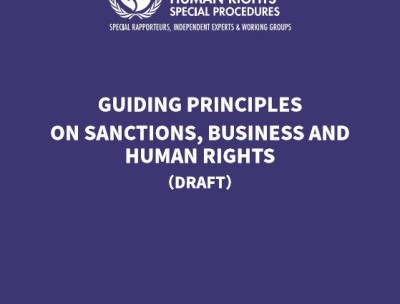
About
The term “unilateral coercive measures” usually refers to economic measures taken by one State to compel a change in the policy of another State. Examples of such measures include trade sanctions in the form of embargoes and the interruption of financial and investment flows between sender and target countries. So-called “smart” or “targeted” sanctions such as asset freezing and travel bans have been employed by individual States in order to influence persons who are perceived to have political influence in another State.
Unilateral coercive measures can negatively impact people’s rights to an adequate standard of living, including food and medical care, housing and necessary social services.
Our work
As part of our mandate, UN Human Rights carries out many tasks relating to unilateral coercive measures (UCMs), including the preparation and presentation of reports on a number of related themes and the organization of workshops and panel discussions. We assess the negative impacts of UCMs on the enjoyment of human rights, and call for the easing or suspension of UCMs that may negatively affect human rights in countries targeted by such sanctions. We also support the work of the Special Rapporteur on unilateral coercive measures.
Current focus
Who else is involved
Special Rapporteur on the negative impact of the unilateral coercive measures on the enjoyment of human rights
The Special Rapporteur is mandated by the Human Rights Council to undertake a variety of tasks, transmitting urgent appeals and carrying out country visits, to address increasing concerns about the negative impact of unilateral coercive measures on the human rights of civilian populations targeted.


